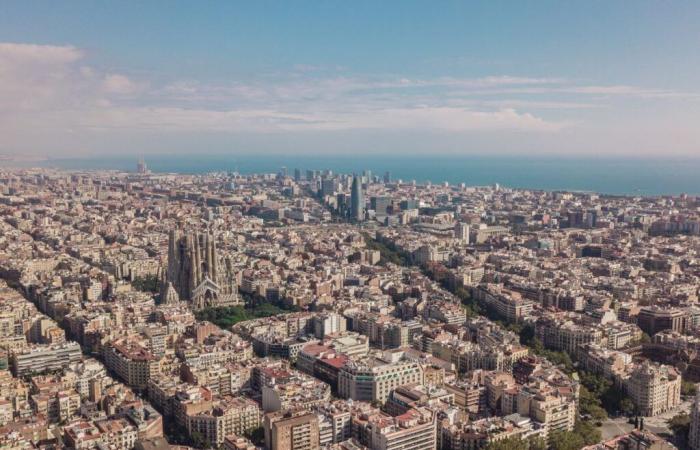In the corridors of Paris City Hall, we impatiently await the publication of the decrees for the entry into force of the Le Meur law, called the law « anti-Airbnb ». Thanks to the new legislation, the next Paris Council, scheduled for next December, could approve the transition from 120 days to a maximum of 90 days to rent your main residence in the capital. Paris remains one of the major European cities with a very high concentration of furnished tourist accommodation: more than 21 per 1,000 inhabitants.
Across the continent, the same criticism keeps coming back to the emergence of platforms like Airbnb: the drying up of classic rental offerings for residents. Each city concocts its own strategy to regulate the market.
Barcelona tolls the death knell for Airbnb
The city of Barcelona has brought out the heavy artillery against Airbnb. In June 2024, the mayor of the capital of Catalonia, Jaume Collboni, announced that he wanted an outright ban on furnished tourist accommodation within 5 years. According to him, the presence of Airbnb in Barcelona, coupled with overtourism, would have completely deregulated the traditional rental market. Since 2014, the average rent for an apartment has increased from 702 euros to 1,193 euros in 2024, according to the Catalan authorities, an increase of almost 70%. To protect themselves, Barcelona had already tightened the screw on multiple occasions. Since 2017, the municipality has no longer authorized new Airbnbs in the city center. In 2029, 10,000 furnished tourist accommodations are expected to disappear, while the Town Hall plans to revoke all licenses.
Read alsoSpain fights back against overtourism
Faced with this imminent ban, Airbnb called Barcelona “to rethink its approach to short-term rental”. In a press release, the American firm affirms that the crisis facing the city can be explained in particular by the low number of new housing constructions and the proportion of vacant housing.
30 nights maximum per year in Amsterdam
Amsterdam no longer jokes with furnished tourist accommodation either. In 2019, the Dutch capital struck a major blow by lowering the number of rental days from 60 days to a maximum of 30 days. For good reason, according to Eurofound data, the number of furnished tourist accommodations exploded between 2014 and 2018, going from 7,000 to 30,000 advertisements. Since 2021, it is now mandatory to register on a government platform in order to be able to rent your apartment on the platforms. Also, the city prohibits Airbnb rentals for groups of more than 4 people, with the exception of families.
From now on, Amsterdam no longer matters « that » 5,000 advertisements for furnished tourist accommodation according to the specialized site AirDna. However, the housing crisis is still hitting Dutch Venice just as hard, especially for students. In recent years, the University of Amsterdam has repeatedly recommended that foreign students not accept their place at university if they cannot find accommodation beforehand.
Read alsoGreece: faced with mass tourism, Athenians fear a housing crisis
Berlin has reversed course
After arriving in Berlin in 2011, Airbnb quickly enjoyed success in Germany's largest city. Since 2014, the authorities have banned furnished tourist accommodation if the rented surface area is greater than 50% of the home. In 2016, Berlin accelerated the repression by prohibiting individuals from renting their main residence on the platforms, under penalty of a fine of 100,000 euros. But the measure led to a deluge of complaints in court.
The Berlin authorities finally reversed course from 2018. Owners can now rent their main residence on the platforms, and second homes are authorized to be rented for up to 90 days a year. Today, Berlin has more than 12,000 advertisements for furnished tourist accommodation, more than 90% of which are from Airbnb.
90 nights maximum per year in London
The story of furnished tourist accommodation is very different in London. Since 2015, the number of nights in an Airbnb has been limited to 90 days per year for entire accommodations. A rule applied directly by Airbnb from 2017, and which does not concern rooms rented from private homes. Beyond these 90 days, London regulations require owners to make a request to the city to continue renting their residence.
“The law is designed to allow Londoners to earn a little extra money by renting out their property when it is not in use […] while protecting London's housing supply for long-term residents”details London Town Hall on its website. According to AirDna, the British capital currently has more than 55,000 advertisements for furnished tourist accommodation.
To try to stem the proliferation of Airbnb-type accommodation, Paris town hall wants to go even further than the new Le Meur law. On November 28, she will present her “plan to fight Airbnb”.






